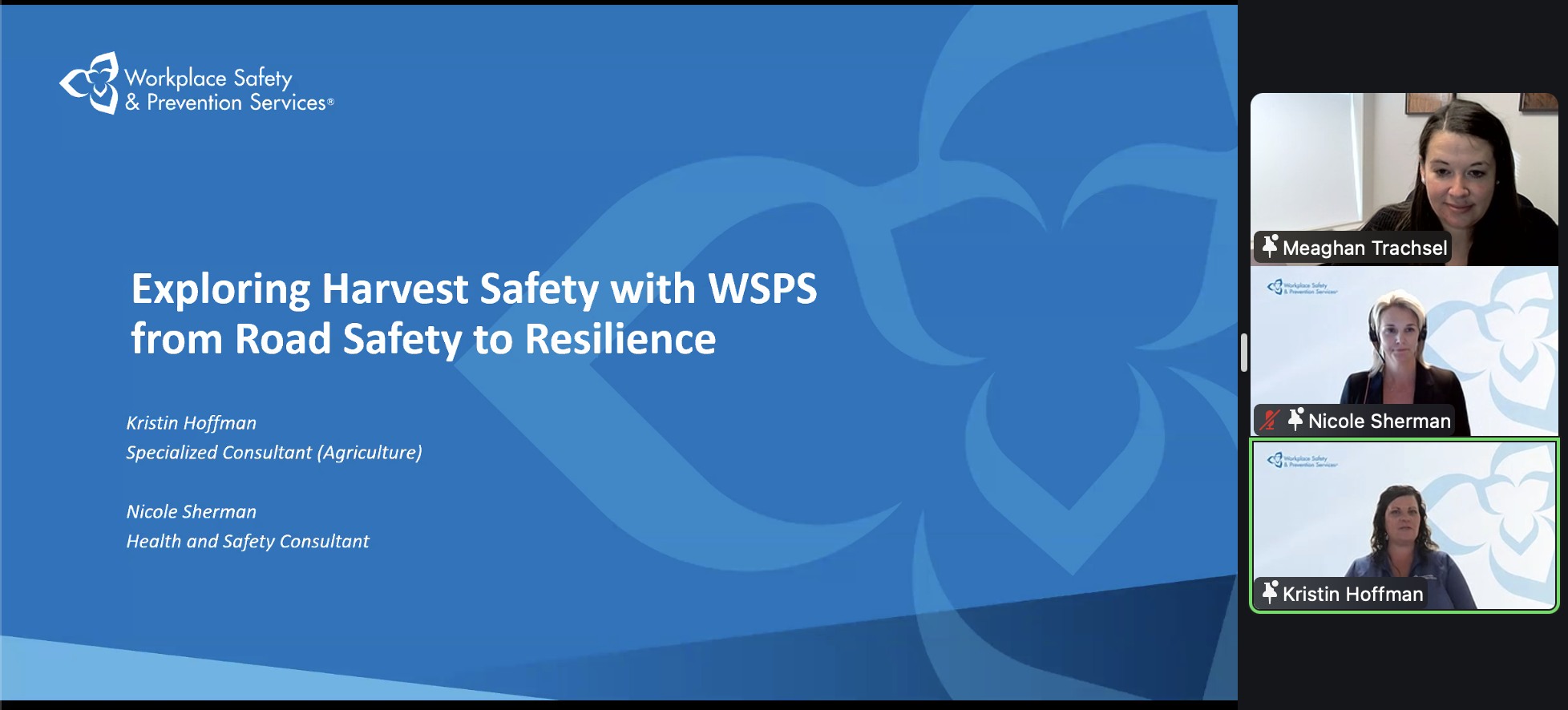The University of Guelph has created a new organization to help launch agri-food ideas and innovations.
Accelerator Guelph aims to provide business training, help create networks and provide a process to innovators in agriculture and food at the university.
Why does it matter? Getting research and great ideas from university researchers to the market has been a challenging process. The University of Guelph has many examples of innovations that have had significant impact on farming, but it believes more can be done.
Read Also

Tips for staying safe this harvest season
Kristin Hoffman of WSPS explains measures for increased farm safety around harvest season
Accelerator Guelph was launched during an innovation showcase Friday in Guelph that highlighted innovation in agriculture and food at the university.
“Our researchers have bold, ambitious ideas, and their work addresses gaps and helps solve problems while shaping the future of food and agriculture in Canada and beyond,” said Malcolm Campbell, the university’s vice-president for research.
The four-phase accelerator program will provide business planning, executive leadership training, financial and accounting expertise and human resources management.
The university has licensed the successful Waterloo accelerator system which includes a tool that helps innovators through feasibility of their ideas, said Dana McCauley, associate director of new venture creations in the University of Guelph’s Research Innovation Office.
The Research Innovation Office has been reorganized; the Catalyst Centre, which was created to transfer technology from the university to the market, has been moved into the reorganized office.
“The real magic of our program isn’t that we are bootcamping these academics through entrepreneurial training, but it will come later,” McCauley said.
“My job is to create a big enough network that I can take these proven concepts that do have good leadership and pair them with more traditional entrepreneurial people.”
Researchers don’t need to be CEO material, she said, but there has to be a process for them to get their great ideas to the market.
A pilot cohort, involving six ideas the Research Innovation Office is using to test the Accelerator Guelph concept, has been identified. The cohort includes:
- Ibrahim Deiab and team are designing a low-cost additive manufacturing solution, like a 3D printer, for metals or bio-consumables made from agricultural waste that can produce manufacturing parts with reasonable accuracy. The effect will be to reduce down time in food and other factories and make it much easier run plant trials and test innovative new ideas.
- Amberley Ruetz and Leah Blechschmidt are starting their business with a consumer insight. They have identified that schools in Ontario lack nutritionally dense, shelf-stable snacks and they plan to create a product that matches school food guidelines and that students love.
- Wael Ahmed and his partners at FlorNergia have developed an innovative airlift pump that improves performance and reduces energy usage in aquaponic and aquaculture applications, making sustainable fish farming more viable.
- Sujeevan Ratnasingham, has created LifeScanner, a kit that can be used to test the DNA of food to ensure against food fraud quickly and affordably.
- Kevin Piunno, has created a user-centric, modular, easily-adapted growth vessel that is more ergometric and flexible than traditional tools used in biology labs.
- Mannick Annamalai has created a new free-flowing encapsulated maple powder that will allow consumers and food product developers to do new things with naturally sweet, local maple products.
— John Greig is a field editor for Glacier FarmMedia based at Ailsa Craig, Ont. Follow him at @jgreig on Twitter.














